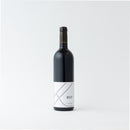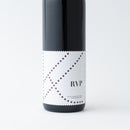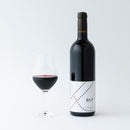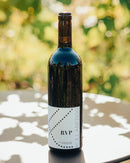Swedish winery's new challenge: innovative red wine
A winery in the Skone region of southern SwedenKullabergs Vingård(Kullabergs Vingård)”. In a sense, they are the artists themselves, as they continue to evolve and challenge sustainable manufacturing methods.
[About Wine]
A medium-bodied red wine with a rich aroma.
The grape varieties used are Ronde, Legend, Pinot Nova and Cabare Noir. This wine is a non-vintage wine, mainly made from grapes harvested in 2022. Some of them include grapes harvested in 2021. It is fermented for 18 months in steel tanks and oak baric (oak barrels), and is completed after malolactic fermentation (secondary fermentation that mellows the acidity of wine).
It is said that red wine grapes are difficult to grow due to cold weather in Sweden, but due to the effects of climate change due to recent global warming and advances in advanced cultivation technology, it has gradually become easier to cultivate red wine grapes in Sweden.
The name of this wine is "RVP" short for "RödVinsProv", which means "dramatic and experimental wine."
*"NV" stands for Non-Vintage" and refers to wine made from a blend of grapes from multiple harvest years, rather than just grapes from a specific harvest year.

◉Taste
It features rich aromas of blackberries, blueberries, marmalade and chocolate, with delicate leather, rose pepper and tulips.
◉ Pairing dishes
It goes well with ham, pate, game and other flavorful vegetable dishes.
This wine goes well with the traditional St. Martin's Day dinner held every November 10th in Sweden (roasted goose, apple sauce, cabbage, pickles, etc.).
The temperature at the time of drinking is 16-18°C.
【Kullabergs VingårdAbout:
Founded in 2014. Among Sweden, the grape farm is a vast 180,000 square meters of land in northwest Skone, suitable for grape production.Kullabergs Vingård”. The company plans to expand to 260,000 square meters in the future. The grape varieties used are PIWI species such as Solaris, Svinier Grie, Muscalis, Donaurie Sling, Pinot Nova, and Cabare Noir. We produce wine by cultivating it using sustainable farming methods that use only the bare minimum of necessary scientific materials.








